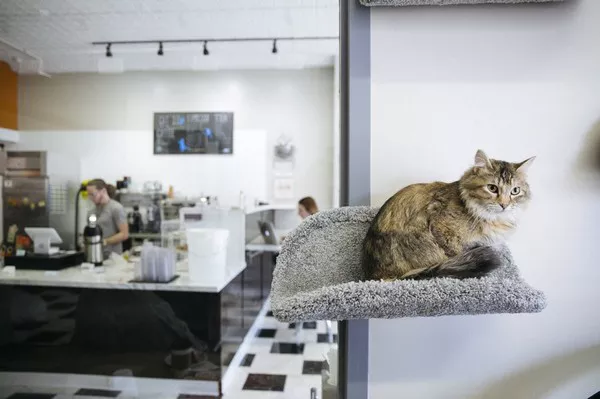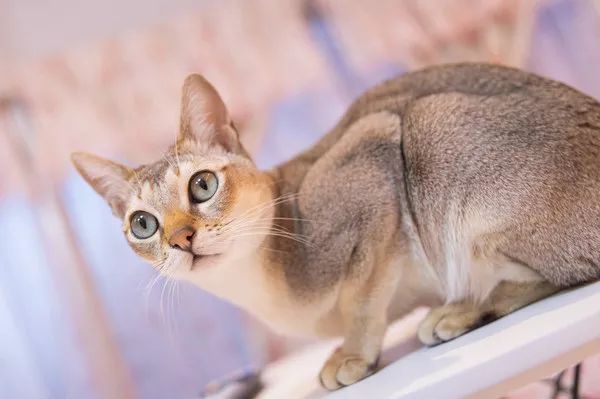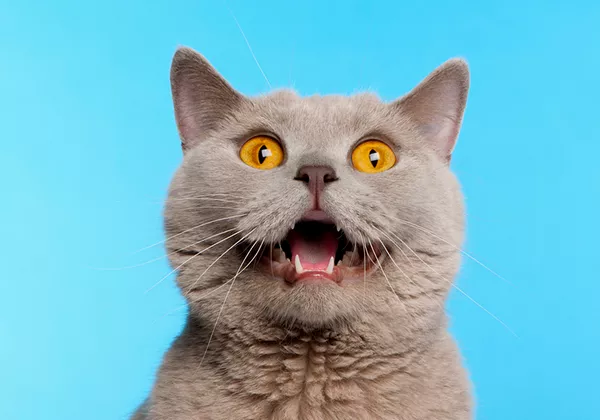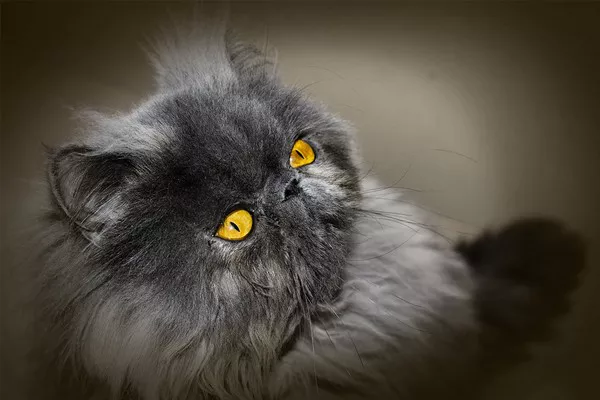As cats age, their needs evolve, and it becomes increasingly important to provide the right care to ensure they maintain their quality of life. Senior cats face unique health challenges that can impact their physical and mental well-being. However, with proper attention, the right diet, regular veterinary care, and a comfortable environment, an older cat can continue to live a happy and healthy life. In this article, we will explore the essential aspects of keeping an old cat healthy, offering practical advice and insights into proactive health management for senior felines.
The Unique Needs and Challenges of Older Cats
Cats are considered seniors at around 7 years of age, though some may experience age-related issues earlier, and others may remain spry well into their teens or even twenties. The aging process for cats comes with specific health concerns and changes in behavior, so understanding how to care for them is crucial.
As cats age, their bodies undergo a variety of changes. Their metabolism slows down, their immune system weakens, and they may develop chronic conditions that can affect their overall health. Senior cats often suffer from conditions such as arthritis, kidney disease, dental disease, and thyroid problems, all of which require specialized care.
Additionally, older cats are more prone to obesity, which can exacerbate many age-related health problems. Their senses may also decline—hearing, vision, and even smell can become diminished, making it harder for them to navigate their environment and communicate.
The challenge for cat owners is to recognize these changes early and to adjust care routines accordingly. Proactive management of cat health, through diet, regular check-ups, and environmental adjustments, is key to ensuring an older cat’s well-being.
Proactive Health Management for Senior Cats
The best way to ensure your senior cat stays healthy is by being proactive rather than reactive. By making a few adjustments to your cat’s diet, exercise routine, and living environment, you can help them maintain their vitality for years to come.
Proactive care helps in managing and even preventing common age-related conditions. For instance, early detection of kidney issues, thyroid problems, or dental disease can lead to more effective treatments and better outcomes. This approach not only improves the quality of life for your cat but can also increase their lifespan.
Diet and Nutrition
Tailored Diet for Senior Cats
One of the most important factors in maintaining your senior cat’s health is a well-balanced diet. As cats age, their nutritional needs change. Older cats generally require fewer calories but higher protein to support muscle mass and energy levels. Senior cat foods are specifically formulated to meet these needs, offering reduced calories but maintaining a higher protein content.
A diet that is rich in high-quality protein helps to support muscle maintenance and tissue repair, which is particularly important as older cats lose lean muscle mass. Additionally, providing a balanced diet with the right nutrients can aid in maintaining healthy kidneys, joints, and digestion. A poor diet can lead to obesity, diabetes, or other complications, which can significantly affect your cat’s quality of life.
Specialized Foods for Senior Cats
There are various commercial cat foods specifically designed for senior cats, with formulas that cater to common age-related health concerns. Some specialized senior foods focus on:
Joint Health: These formulas often contain glucosamine and chondroitin, which support joint function and help manage conditions like arthritis, a common issue for older cats.
Kidney Function: Kidney disease is a prevalent concern for older cats, and food designed to support kidney health typically contains controlled levels of phosphorus and higher amounts of omega-3 fatty acids.
Cognitive Health: Some senior formulas also include ingredients like antioxidants and omega-3s to help maintain brain function and stave off cognitive dysfunction syndrome (CDS), which affects many elderly cats.
When choosing food for a senior cat, consider both their age and any specific health concerns they may have. Your veterinarian can help guide you toward the best options, ensuring the food is aligned with your cat’s specific needs.
Hydration
Hydration becomes even more critical as cats age, especially since kidney disease is a common issue among older cats. Dehydration can exacerbate kidney problems and lead to further complications. Cats are not always good at drinking water, so it’s essential to make hydration easy and appealing.
One of the most effective ways to ensure your cat stays hydrated is by incorporating wet food into their diet. Wet food provides moisture, which can help prevent dehydration and support kidney function. Additionally, consider using a water fountain to encourage drinking, as many cats prefer running water over stagnant bowls.
Regular Veterinary Check-Ups
As cats age, it’s important to increase the frequency of veterinary visits. For senior cats, it’s generally recommended to schedule a check-up at least twice a year. These visits help monitor any changes in health and allow your vet to catch potential problems early.
Veterinary exams for senior cats often include thorough physical checks, blood work, urinalysis, and sometimes imaging (such as X-rays or ultrasounds). These tests can identify common health issues that become more prevalent with age, such as kidney disease, diabetes, hyperthyroidism, and dental disease.
Common Health Screenings for Older Cats
Routine screenings are an essential part of senior cat health management. Some of the most important tests include:
Blood Tests: To check for kidney disease, liver issues, anemia, and thyroid problems.
Urine Tests: To check for kidney function and urinary tract issues.
Dental Examinations: Dental disease is common in older cats and can lead to pain and systemic infections if not managed.
Thyroid Screening: Hyperthyroidism is a common endocrine disorder in senior cats, causing weight loss, hyperactivity, and other symptoms.
Regular check-ups and screenings help catch these conditions early and improve the chances of successful treatment or management.
Exercise and Mental Stimulation
Physical Activity
Even older cats need exercise to stay healthy. While senior cats may not be as active as they once were, gentle, low-impact activities can help maintain mobility and prevent obesity, which is especially important in older cats.
Interactive toys, such as laser pointers, feather wands, and puzzle feeders, can encourage your cat to move around and engage with their environment. Additionally, setting up different areas for climbing, jumping, or lounging will help keep them physically active without overexerting them.
If your cat has arthritis or other joint issues, be mindful of the type of exercise you encourage. Activities that are too strenuous or require excessive jumping can cause pain or injury, so gentle play that involves slow movement is ideal.
Mental Stimulation
Mental stimulation is just as important as physical exercise for senior cats. As cats age, they may develop cognitive dysfunction syndrome (CDS), a condition similar to dementia in humans. CDS can cause confusion, disorientation, and changes in behavior.
To help combat this, provide your senior cat with plenty of mental stimulation. Puzzle toys, treat-dispensing toys, and even training exercises can help keep their minds sharp. Additionally, maintaining regular routines can provide structure and security, which can be comforting for a cat showing signs of cognitive decline.
Comfort and Environment
Accessible Living Spaces
As cats get older, they may experience mobility issues, such as arthritis, which can make it difficult to reach their favorite resting spots or climb to higher surfaces. You can make your home more accessible by placing ramps or steps near their favorite resting areas. Providing soft, supportive bedding in easily accessible locations will also help them feel comfortable and secure.
Comfortable and Stress-Free Environment
Older cats are more sensitive to stress and environmental changes. Ensure that your cat’s living environment remains calm and predictable. Avoid sudden changes in routine, and provide a quiet space where your cat can retreat if they feel overwhelmed. Cats are creatures of habit, and maintaining a consistent environment will contribute to their emotional well-being.
Monitoring and Managing Health Issues
Arthritis and Joint Care
Arthritis is common in older cats, and it can significantly impact their mobility. To manage arthritis, consider using joint supplements containing glucosamine and chondroitin, which can help reduce inflammation and improve joint function. Regular low-impact exercise, along with comfortable bedding, will also help manage arthritis symptoms.
Dental Care
Dental health is crucial for senior cats. Dental disease can lead to pain, difficulty eating, and even systemic infections. Regular dental check-ups are essential, and if necessary, professional cleanings can help prevent tartar buildup. At home, you can maintain your cat’s oral hygiene by using specially formulated cat toothpaste and providing dental treats or toys.
Medication Management
If your senior cat is on medication for conditions like arthritis, hyperthyroidism, or kidney disease, it’s important to administer the medication as prescribed and monitor for side effects. Always follow your vet’s instructions carefully and report any changes in behavior or health to ensure proper medication management.
Emotional Well-Being
Routine and Stability
Older cats thrive on routine. Maintaining a consistent daily schedule for feeding, playtime, and cuddles can help your cat feel secure and at ease. If you need to make changes to your routine, try to do so gradually to avoid causing stress.
Affection and Interaction
Senior cats still crave affection and companionship. Spend quality time with your cat, whether it’s through petting, sitting together, or engaging in gentle play. Emotional well-being is a vital component of overall cat health, and ensuring your cat receives plenty of attention and love will keep them happy and content.
Conclusion
Keeping an old cat healthy requires careful attention to their physical, emotional, and environmental needs. By providing a balanced diet, regular veterinary care, mental stimulation, and a comfortable living space, you can help your senior cat live a long, happy, and healthy life. Proactive care and early detection of health issues are key to managing age-related conditions and ensuring your cat enjoys their golden years to the fullest. Remember, your cat’s health is in your hands—treat them with the care, love, and respect they deserve, and they’ll reward you with many more years of companionship.
Related Topics



























